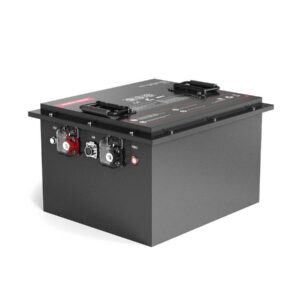
Do lithium batteries have AC rating?
Lithium batteries do not have an AC (Alternating Current) rating as they are fundamentally DC (Direct Current) power sources. Their specifications focus on DC parameters like voltage (3.6V, 1.5V), capacity (mAh), and watt-hour (Wh) ratings. For AC applications, external inverters convert their DC output to AC, with inverter specifications (e.g., 120V AC/60Hz) determining compatibility rather than the battery itself.
How to Safely Dispose of and Recycle Car Batteries
Why don’t lithium batteries use AC ratings?
Lithium batteries inherently produce DC due to their electrochemical design. Unlike grid power, which uses AC for efficient long-distance transmission, batteries store energy chemically, releasing electrons in a unidirectional flow. DC voltage and capacity are the critical metrics, making AC ratings irrelevant without external conversion hardware.

Battery cells generate DC through redox reactions between electrodes and electrolytes. For instance, a 3.6V lithium thionyl chloride battery maintains steady DC output for devices like gas meters. Pro Tip: When selecting batteries for AC appliances, prioritize inverter compatibility (e.g., pure sine wave inverters for sensitive electronics). Imagine powering a household lamp: the battery’s DC 12V output requires an inverter to transform it into AC 120V. Without this step, the lamp won’t function.
Can lithium batteries power AC devices directly?
No. Direct AC operation requires an inverter to convert DC to AC. Lithium batteries supply DC-only power, while AC devices need specific voltage/frequency (e.g., 120V/60Hz). Using mismatched voltages risks equipment damage. Inverters bridge this gap, enabling compatibility with AC systems.
For example, a 24V lithium battery paired with a 2000W pure sine wave inverter can power refrigerators or power tools. However, inverter efficiency (typically 85–95%) impacts runtime. Pro Tip: Oversize the inverter by 20% to handle surge currents. Warning: Avoid modified sine wave inverters for medical devices—they may cause harmonic distortion. Think of inverters as translators: they reinterpret the battery’s DC “language” into AC that appliances understand.
| Component | Role | Specification Example |
|---|---|---|
| Lithium Battery | DC Power Source | 48V 100Ah (4.8kWh) |
| Inverter | DC-AC Converter | 5000W, 120V/60Hz |
Battery Expert Insight
FAQs
What’s the difference between Wh and AC wattage?
Wh (watt-hours) measures total DC energy storage. AC wattage refers to power delivery post-conversion, accounting for inverter losses (e.g., 100Wh DC ≈ 85Wh AC at 85% efficiency).
Can I use car lithium batteries for home AC systems?
Yes, but only with an inverter rated for the battery’s voltage (12V/24V/48V) and the home’s AC demands. Undersized inverters may overheat or fail during high-load cycles.
